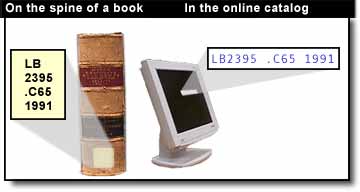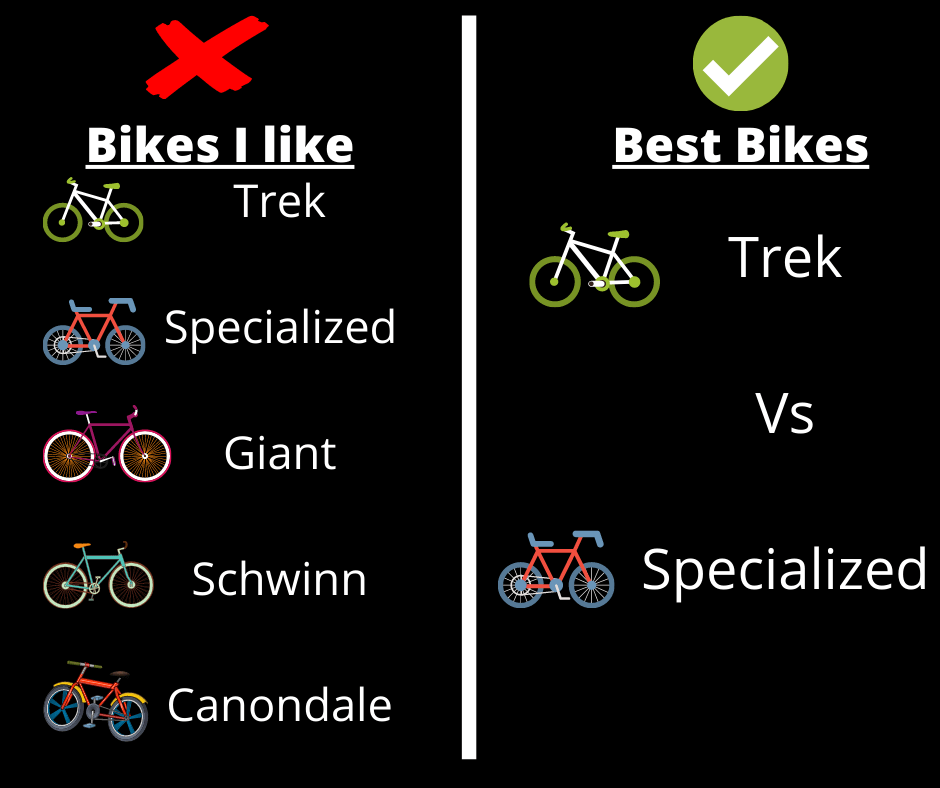Keywords are one of the most powerful components of Search Engine Optimization. Anybody that has ever owned a website will agree, that without proper keyword optimization, your entire online presence can suffer. While some people claim that SEO is dead, our view is that it is just getting started.
Today, the power of keywords is what drives majority online traffic. With about 2 million new web pages published every day, the choice of your keyword has a direct impact on the traffic you get.
In this post today, we want to guide you through the power of keywords in SEO (Search Engine Optimization) and specifically try to answer the below questions:
- What is a Keyword
- What is the importance of Keywords in SEO
- The different types of keywords
By the end of this tutorial, our goal is to highlight the importance of keywords in SEO and why keyword selection should be your top priority if you are trying to exemplify your online presence; more especially if your goal is to rank in the first pages of Google Search Engine Result Pages (SERPs).
What is a Keyword and How is it used for Website Indexing?
Below is an example of a search related to the keyword "best bike brands"

To fully understand the concept of keywords, it is important to understand how Google Indexing works. One of the prime functions of Google is that of an indexing software, which means, it creates a ledger of information about all accessible websites in the world. To understand the concept of Google Indexing: let us take the example of a Library and its Librarian.

In a physical library, the librarian has an index or a list of all the books that are found in the library. The books are marked with labels that did not come with it when it was printed. It is the librarian who labels the spine with numbers and codes, puts the book in the appropriate shelf, and then lists down the essential information of the book in their ledger / computer.

This is what happens in a library:
- A new book comes in with the title “A Theory of Human Motivation” written by Abraham Maslow
- The librarian reads the high level content of the book and knows that it has the topic “hierarchy of needs.”
- The librarian then puts it on the center of Shelf 7, Psychology aisle
- The librarian marks the spine of the book and labels the book number as P-SH-1943-C07 (hypothetical)
- The librarian writes the title of the book, author, date it arrived in the library, book number, and shelf location in his ledger / computer
Essentially the librarian just indexed the book to acknowledge
- What category the book belongs to "P" - (Psychology)
- What is the sub-category - "SH" - Self Help - Human Motivation - hierarchy of needs
- Who is the writer of the book - Abraham Maslow
- Where is the book stored - C07 - Center of Shelf 7, Psychology aisle
Now when, you go to the library, and ask the librarian about a book that has the topic “hierarchy of needs" - The librarian opens the ledger, or index, and tells you to go to Shelf 7, Psychology aisle, and look for the book "A Theory of Human Motivation" by Abraham Maslow.
You follow his instructions, and get the book that you want.

Google works in a similar way, but the indexing is more complex.
Google, uses robot crawlers or GoogleBots to “read” the content of web pages on the internet. These robots then crawl the page and report back categorizing what the page is about, what category etc. This categorization is done based on the indexing program which lists important “keywords” on that web page. Learn more about indexing here.
If a user types a keyword or keyword phrase in Google search, the search engine will look at ALL web pages that are relevant to the keyword/ keyword phrase being searched and match it to show the list of all articles that have those keywords, starting from what it thinks is the most relevant.
If your blog page has the words Abraham, Maslow, Hierarchy, and Needs, Google is likely to show your web content to somebody who types “Hierarchy of Needs by Abraham Maslow.”
What is the Importance of Keywords in SEO
So, why is a keyword important? Isn’t it obvious that if your web page has the words “best bike brands,” then your page should be visible under Google's search results?
Yes and No.
It's very plausible that you are not the only person that used these words in your website. Your ranking on the SERPs is an ongoing competition with all the other websites/ blogs that have this keyword. Your goal is to convince Google that your website is the most relevant. This is where keyword becomes important for content optimization.
For example - If your website is about dogs, Google expects your webpages to have the word “dog” and other related words such as “Golden Retriever,” “feeding a dog,” “training a dog,” and more in it.
There are two factors driving the importance of keywords in SEO:
These are Topic Relevancy and Search Volume.
Topic Relevancy
In one of our other posts - we mention about the AI (Artificial Intelligence) factor that Google uses when it crawls and indexes websites. Despite the Google search algorithm being as intelligent as it is, it is still a program which follows the fundamental rules of programming.
Relevancy is one parameter which Google looks for in any article. Relevancy is primarily driven by 2 factors:
- Use of appropriate keywords in your article
- Structuring the article to make it relevant to the keyword you want to rank for.
Let's just say for instance, you want to rank for the keyword "Best Bike for adults". You write an article about “best bikes” on your blog. However, you structure the article talking in general about multiple bike brands and do not mention explicitly the keyword "Best bike for adults". Google will never know that your article is about best bike for adults if you do not use that keyword in your article and structure your article in a way in which it emphasizes that you are talking about best bikes that are for adults. An example of emphasis would be a comparative review about bike brands Trek and Specialized and then recommend why specialized in the best bike for adults over the age of 20.

Alternatively - in another post if you structure your post around how to change bike tires and mention the keyword "Best Bike for adults" several times in your article, Google will know that the article is about changing bike tires and not about the best bikes. The Googlebots are smart enough to understand that the content is not relevant to that keyword. You have to use the right phrases so Google will rank you for those keywords.
Further Google also looks at user behavior to monitor what your site is about. For instance say you do manage to rank the article about changing bike tires for the keywords "Best Bike for adults". When a user, who is searching about this keyword, clicks on your link and realizes its about changing bike tires, they will bounce off your website and not open it again. If there are several readers who exemplar that behavior, Google will realize that your article is not relevant to what the user is searching for and hence de-rank that page.
This is why keyword selection and placement are important—they tell the robots and users what your web page is about. Based on the selection and placement, the webpage is ranked.
Search Volume
Keyword selection tells you what people are looking for. Putting in a keyword for which there is no search volume will likely not cause an inflow of traffic to your blog. The only time you want to rank for an uncommon keyword is when you already have a designated fan following who follow your each post and will read your content no matter what.
If you are running a blog or an online store, using a high volume keyword is essential.
Just take a look at the below keyword research tool results. Here we want to look for keyword ideas around the word Bikes.

A quick search on the keyword tool shows us that the keyword “Peloton bike” has a search volume of 450,000. This means that the average search volume for this keyword is 450,000 per month in the last 12 months.
If want to make our blog post rank - we can use this keyword in article or have a segment dedicated to this keyword so the post ranks when people look for those keywords.
If we cross-check the “peloton bike” keyword in Google Trends, we can see that it peaked on December of 2019, but it still does have an index score of 25+ as of July of 2020. Hence it makes sense to include this keyword if your post was written around 07/20.

Now that we have gone through Topic relevancy and Search Volume - we can summarize the benefits as:
- Webpage Indexation - A relevant post that has a high search volume keyword will get your page indexed fast from Google.
- Traffic - The keyword and relevancy will generate SEO driven traffic.
If you do not use the right keywords, Google will not index your web page as appropriate for a search term. If you write about an article called “My First Time Riding a Bike,” Google will not mark that as content for “best bikes.”
Also, that keyword has no volume at all, as you can see below. If there is no volume, you will not get any traffic.

The Different types of Keywords in SEO
Previously we discussed the importance of keywords in the article. Its imperative to know that not all keywords are equal. There are many types of keywords, like short tail keywords and long-tail keywords which work in different ways. Listed below are the different types of keywords which can be used in an article:
Generic Keywords or Broad Match Keywords
These are keywords that allow you to reach the maximum audience. These are generic keywords which people type in the search engine if they do not have something specific to look for.
Here are some examples for the keyword “best bikes”:
- Best electric bike
- Best exercise bike
- Best mountain bikes
Notice, they all have the generic word “best.” Due to the common nature of the search query and the high search volume associated with it, General Keywords are the hardest to rank. That is because of the likelihood of high competition from several authoritative sites on the same keywords.
Modified Broad Match Keywords
Modified Broad match Keywords are similar to generic keywords, but they have an added word in them.
Here are some examples:
- Affordable best mountain bikes
- Best electric bike for snow
- Best Stylish exercise bike
On close analysis, they are still broad match keywords, but with an addition of a specific word that users may be looking for. These keywords work best when the user intent has changed. In the generic keyword, the user intent is to look for only best mountain bikes. For modified, the search intent is now for “affordable best mountain bikes”. As the intent of the user narrows, the competition to rank for the keyword also becomes lighter. The light competition is primarily as a result of a smaller niche of clients the keyword caters to.
Short Tail Keywords
A short tail keyword refers to keywords that have only one word (or two). Examples are keywords like Peloton, Merida, or Scott. These keywords are for bike brands.
You can modify these brand names into keywords like “Peloton bike” or “Peloton review” to make it more specific.
Generally speaking, all short-tail keywords are generic keywords. You use them to search for more specific keywords that you can use.
Long-Tail Keywords or Phrase match Keywords
Long-tail keywords or Phrase match keywords refer to keywords that are very specific.
Below are some examples:
- Top Peloton bikes for Adults
- List of best bikes for summer
- Best bikes to use in winter in Ohio
Long-tail keywords have less volume, but the advantage is that you are targeting specific search intent.
If you use long-tail keywords, Google is going to index your article or web page for that specific search. If a user types several words that match your long-tail keywords, Google is more likely to show your content to the user.
Exact Match Keywords
An exact match keyword is exactly what the term implies—it is an exact match of your content keyword with what a user typed in the search engine.
An exact match can also be a short tail or a long-tail keyword. For as long as it matches what a user typed, then it is an exact match.
You only use exact match keywords if you are trying to target a specific audience. For example, you can use the keyword “best biking compression shorts for men.” In this case, your target audience is comprised of people who are looking for compression shorts, but not just any compression shorts— its compression shorts for biking for men.
Negative Match Keywords
The last type of keyword is for advertising. If you advertise on Google, you are paying for impression and clicks, so you want each impression to matter.
For example, let us say you are selling mountain bikes. If you create an ad on Google and use the keyword “best bikes,” you do not want to show your ad to people looking for an “exercise bike.”
The “exercise bike” is the negative match.
Why is negative match keyword important? If people are looking for exercise bikes and they clicked your ad, you pay for that click, but you will not make a sale.
Summary: Power of Keywords in SEO
The power of keywords in SEO is not something you should ignore. There is a debate that SEO is dead. It is not true.
Search engine optimization and keyword selection are very much thriving. In the near future we don't see the importance of keywords fading away. Keyword is the first step to get indexed, and there is no other way to go around that.
Use keyword tools to your advantage. You can use free tools like Google Trend and Google Keyword Planner, or you can use paid tools if you really want to manage your SEO activities.


